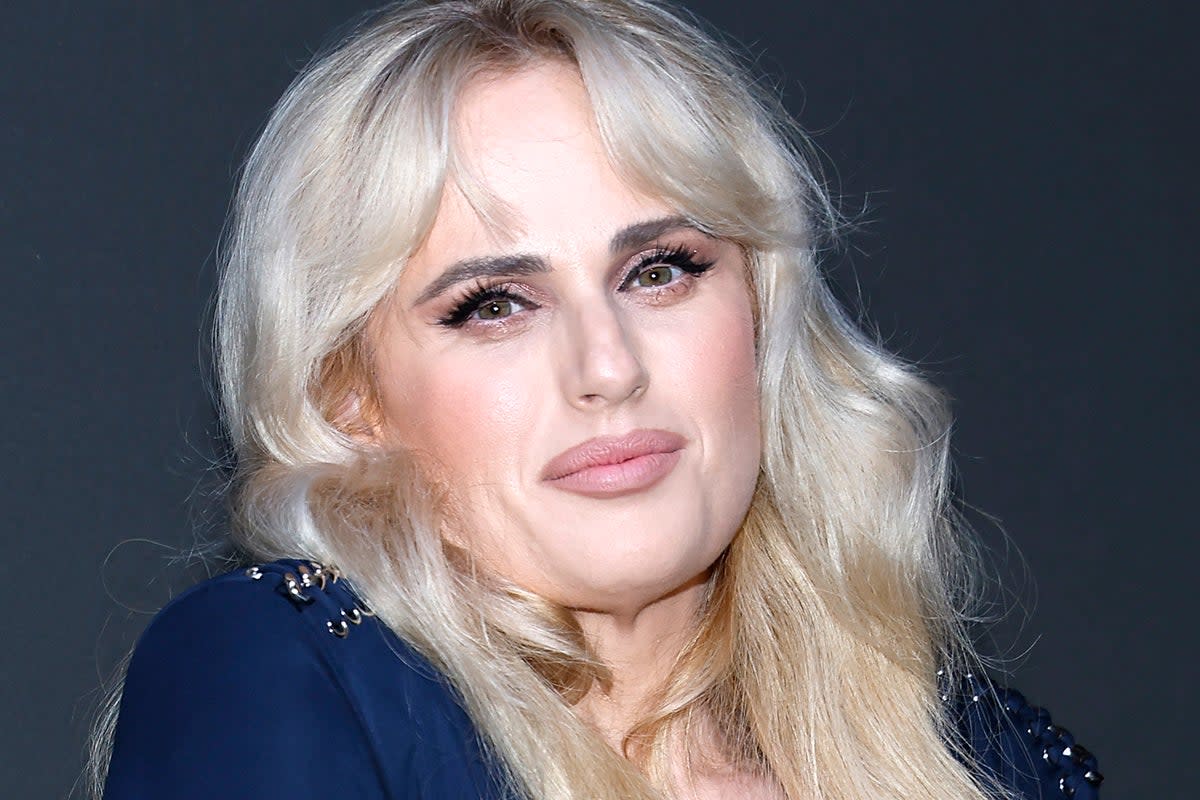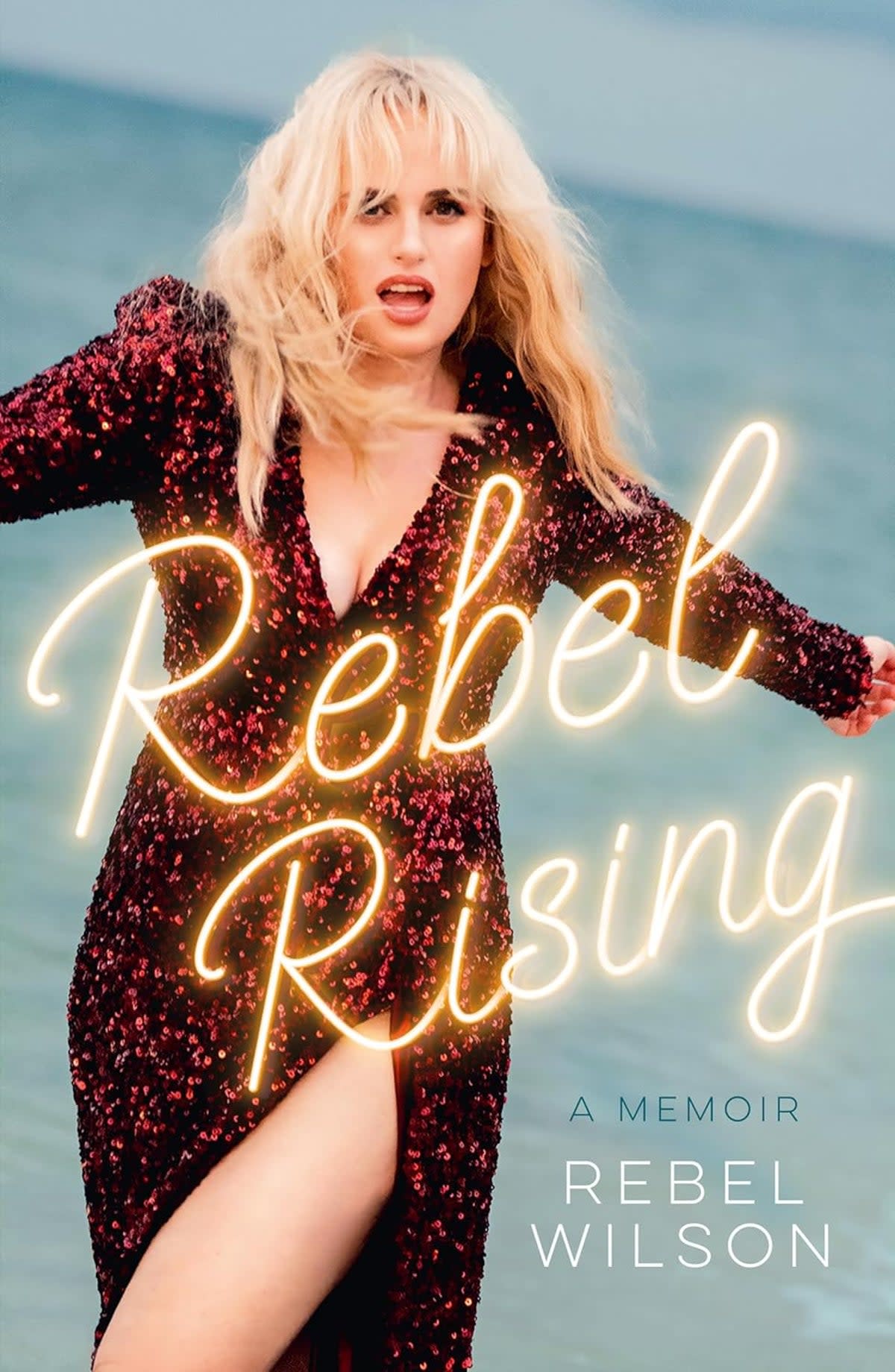Rebel Wilson’s controversial memoir is bemusing, tone-deaf and obsessed with money

Rebel Wilson landed in Hollywood with a mission: she would be the female Jonah Hill. She sensed there was a gap in the market for a girl like her, who grew up, dreaming of networking opportunities, in an Australian suburb and was taught in a university course on comedy that “people like to laugh at people that they don’t want to sleep with”. “I can create content, and that’s valuable,” she told Hill’s agents at a meeting in 2010, while hoping to get them on board with the Rebel Wilson business plan. “I see them pondering my potential and future in their minds,” she writes in her new memoir Rebel Rising. “My boob sweat starts to drip again.”
Wilson’s book may be the first celebrity memoir to forgo gossip and myth-making in favour of detailing marketing strategies and movie-star asset management. Yes, there is a gripping – and, for the book’s UK release, heavily redacted – chapter describing the actor and comedian’s run-ins with Sacha Baron Cohen, which moves with the speed of a thriller. But otherwise, Rebel Rising is a bemusing curiosity, an autobiography in which we are asked repeatedly to celebrate its author’s expensive jewellery, high salaries and multiple apartments around the globe. “I love buying property,” Wilson writes. “It reminds me of how little Rebel would strategise whilst playing Monopoly – ‘Buy, buy, buy!’ was always my motto.”
The tell-all memoir has always held a vaunted position in celebrity culture, lending even the most throwaway of stars an elegant, literary sheen. But the market is also at saturation point, flush with books by famous faces with little to say about anything, let alone themselves. Paris Hilton’s was too brand-conscious. RuPaul’s was a narcissistic slog. Jada Pinkett Smith’s felt like being held hostage by someone who’s just got back from an ayahuasca retreat and is determined to tell you absolutely everything about it. Wilson’s, frankly, is too early – written by a star who is still figuring out who they are as a woman and as a celebrity, so fills in the blanks with braggadocio and boob jokes.
Wilson has, without question, had a film career. But it’s been a very modern one, her work scattershot rather than consistent, unmemorable when it’s not completely catastrophic. No other modern funny-person is as perfect for an age of Netflix algorithms and semi-regular magazine articles asking whether the comedy movie is dead. After making a name for herself in Australian sketch shows, Wilson moved to Los Angeles in 2010, immediately signing with an influential talent agency. She was then cast in a role in Kristen Wiig’s rollicking comedy hit Bridesmaids. It remains the only truly good film she’s ever made.
The ones that followed Bridesmaids – among them star vehicles including The Hustle and Isn’t It Romantic, as well as the Pitch Perfect musical franchise – gleefully embraced Wilson’s comic persona, her staccato deadpan, and her somewhat rote, fish-out-of-water oddity. In her book, Wilson acknowledges the niche she’s always filled in the industry – “the fat funny girl, making self-deprecating jokes” – and occasionally hints at resentment over it, but never pursues the thought further. She seems curiously uncurious about her own image, or the creative legacy she’s leaving behind. There are only scant mentions of Cats, for instance, despite the 2019 Andrew Lloyd Webber adaptation being a noteworthy blight on a CV already awash with guff. “I actually quite like the film and think the artistry is incredible,” she writes, in what is potentially the book’s only laugh-out-loud line.
Instead, it is money that always seems to soothe Wilson’s wounds. When she decides to lose weight in 2020, she briefly ponders whether she’ll still be funny with a different body size, or if it’ll affect people’s responses to Senior Year, a cheerleader comedy she’s due to shoot. “89 million unique Netflix accounts watch it within the first 10 days of release. It’s a global hit! I think I’m fine,” she writes a sentence later.
There is, I suppose, something slightly transgressive about a famous person writing about their own life like this – that Rebel Wilson is openly and proudly a form of content, happy to be flogged to the masses. The female Jonah Hill like she promised, optimised for massive earning potential. But it makes Rebel Rising a surprisingly chilly read – celebrity tell-all by way of a Steven Bartlett podcast. Everything is slightly mechanical: the professional choices Wilson makes, the endorsement deals she takes, what she feels constitutes a win. “I filmed three movies back-to-back for a whopping $20m US dollars in acting salary total,” she boasts. “I also produced The Hustle and Isn’t It Romantic, which made me even more money.”

In its early stages, Wilson’s book feels so on-the-nose in its love of cash and trinkets that it almost comes off as a gag. “My four MTV Movie Awards sit in a trophy case I have at my second home in Los Angeles,” she declares. “Because yes, I have two.” But as Rebel Rising unfolds, it becomes clear that this is just Wilson – her natural mode of conversation, at least on paper, is consistently tone-deaf and baffling. “I really related to rap music,” she writes at one point. “Rappers wanted money and prestige – I wanted that too. Rappers normally had a hard life – even though I clearly wasn’t growing up in Compton around guns and drugs, in my own mind things were tough. I had no friends, my parents were increasingly bickering and money was again tight. Tight because of my expensive school fees, Dad said.” See what I mean?
In the Baron Cohen chapter, Wilson describes working with him on the doomed spy spoof Grimsby, and how “everything felt off”. “From how I perceived it, he wanted me to wear a sleeveless top that showed the chunkiest part of my arms and a much shorter skirt where you could see as much cellulite as possible ... This felt personal – like he just wanted me to look and feel awful.” Her character Fat Amy in the Pitch Perfect movies was different, she adds. “I was in control of that character. It felt to me [on Grimsby] like a bunch of men were degrading me ... in my opinion, they thought it was funny to laugh at the fat girl.”
It’s the best chapter in the book, not only for the gossip but because it gets so close to actually being about something – about agency and power, and the delicate difference between using your body for a joke and having your body used for a joke. Some of the best celebrity memoirs in recent months have been by women who are aware of how their bodies have been packaged and sold in the entertainment industry, and are able to articulate the tension between exploitation and self-expression – think Pamela Anderson’s insightful Love, Pamela, Britney Spears’ haunting The Woman in Me, or Julia Fox’s harrowing Down the Drain.
Every once in a while, Wilson needles towards an insightful point like those women did in their books, but then scampers away frightened. It’s consistently disappointing. But perhaps it’s just the comedian in her. Why bare your soul when you can just slip on a banana peel?
‘Rebel Rising’, published by HarperCollins, is in shops
